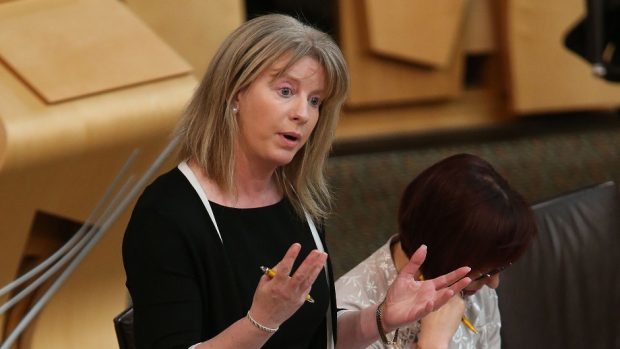The Scottish Government announced plans for a flagship trauma centre in Aberdeen without having all the evidence to back it up, the Press and Journal can reveal today.
Ministers chose not to wait for the outcome of a study assessing the need for four trauma centres in Scotland before committing to building one in the Granite City by the end of this year.
Health Secretary Shona Robison now faces a humiliating U-turn as new expert advice has cast doubt on whether or not Aberdeen is a suitable location for the facility.
Scottish Labour MSP Lewis Macdonald said the situation was now “the biggest threat to the standing of ARI in a generation” and demanded Ms Robison “end the uncertainty” about whether the life-saving facility would be built.
But last night Ms Robison hit back, insisting “Aberdeen will have an essential role within the network”.
Mr Macdonald said: “The proposed U-turn by SNP ministers poses the biggest threat to the standing of ARI in a generation.
“They need to act now to confirm that ARI will be a major trauma centre in the future.
“They must not expect staff or the public in the north-east to wait until after the next election before a decision is made.”
In 2014, then Health Secretary Alex Neil gave the green light to plans to build four trauma centres across Scotland, with the others being based in Dundee, Edinburgh and Glasgow.
His decision was based on expert advice from top doctors on the Major Trauma Oversight Group (MTOG), who recommended building the four facilities in 2013.
But they also cautioned that ministers should take account of the Geospacial evaluation of systems of trauma care for Scotland (GEOS) report, which was eventually published in 2015 and cast doubt on whether four centres were needed.
Ms Robison is now citing the report as one of the reasons behind the delay in building the delay in building the life-saving unit at ARI.
But Mr Macdonald said she should not put “more faith” in the GEOS model than the original evidence and support from the major trauma clinicians, who backed the MTOG group in 2014.
Ms Robison insisted the GEOS report was “just one piece of information that has been considered” and said further work – including consultation with clinicians – had prompted the decision to look again the “most appropriate network for Scotland.”
She added: “Aberdeen will have an essential role within the network – no matter what final decision is made on the shape of trauma services.
“We estimate that an additional 40 lives a year can be saved, with many thousands benefiting, from the enhanced care that a major trauma network offers.
“However, in order to achieve this, it is extremely important we get the model of care right.”
